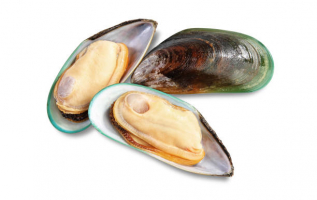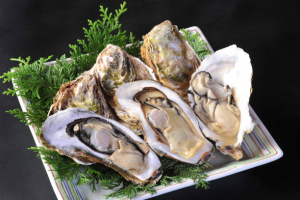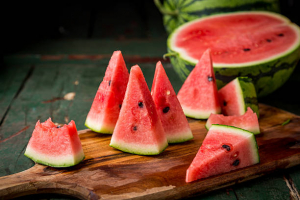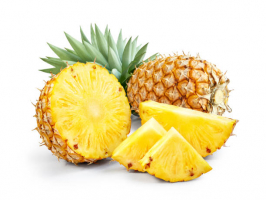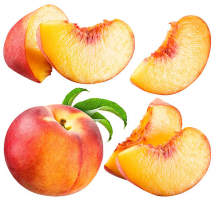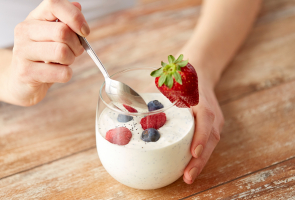Top 10 Health Benefits of Eating Mango
When it comes to tasty and healthful fruits, mango is a well-known name among today's popular fruits. Mangoes come in a variety of colors, shapes, flavors, and ... read more...seed sizes across the world. They have a pleasant flavor and over 20 vitamins and minerals. Mango is a fruit that you are all too acquainted with, but not everyone is aware of all of the health benefits of ripe mangoes. Check out this article to know more about the benefits of mango.
-
Mangoes have been utilized in traditional Indian medicine for thousands of years to aid digestion. According to one study, mango not only has anti-diarrheal properties but also has anti-bacterial features. Mangoes include a class of digestive enzymes known as amylases. Digestive enzymes break down big food molecules so that they may be absorbed more easily. Amylase degrades complex carbohydrates into sugars like glucose and maltose.
Furthermore, because mango is high in water and fiber, it can aid with digestive issues such as constipation and diarrhea. Based on 4-week research on persons with chronic constipation discovered that eating mangoes daily was more beneficial than a supplement providing a tiny quantity of fiber in relieving symptoms of the illness comparable to dissolution.

Beneficial to the digestive system 
Beneficial to the digestive system -
Mangoes have been demonstrated to benefit heart health by managing blood pressure, cholesterol levels, and triglycerides. In particular, mango contains a high concentration of minerals such as magnesium and potassium, which assist blood vessels to relax and keep blood pressure steady, lowering the stress on the heart.
Furthermore, animal studies have revealed that mango has a high quantity of polyphenols. Mango is regarded as heart-healthy due to its high concentration of polyphenols (mostly mangiferin, quercetin, gall tannin, and gallic acid), chemicals that are physiologically active as antioxidants, anti-inflammatory agents, and anti-infective agents. As a result, the risk of cardiovascular disorders induced by free radicals, such as heart failure and myocardial infarction, is reduced. Furthermore, mango has a high concentration of vitamin C, pectin, and fiber, which aid in the reduction of bad cholesterol (LDL) and triglycerides (triglycerides) - risk factors that are poorly managed and can quickly lead to diabetes and cardiovascular problems
Lower your risk of heart disease 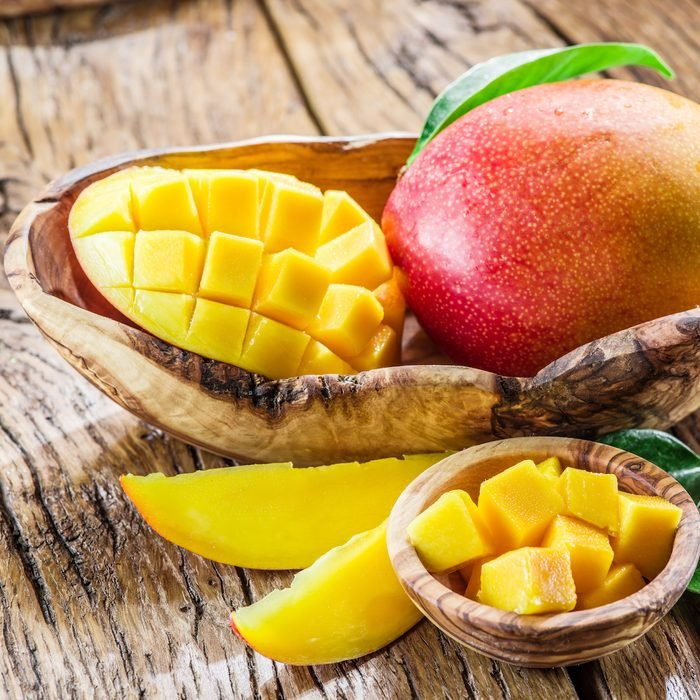
Lower your risk of heart disease -
Mangoes are strong in polyphenols, which are plant components that act as antioxidants and may be anti-cancer. It comes in a variety of forms, including mangiferin, catechins, anthocyanins, quercetin, kaempferol, rhamnetin, benzoic acid, and many more. Among the polyphenols, mangiferin is the most interesting and is frequently referred to as a "super-antioxidant" because of its promising anti-cancer abilities.
Mango had some impact on all malignancies examined, especially it was most beneficial against breast and colon cancer. According to research undertaken by the Department of Nutrition at the Harvard School of Public Health, a diet high in beta-carotene (the component found in mangoes) may also have a role in combating prostate cancer. Furthermore, in a study conducted by Texas AgriLife Research, food scientists tested a polyphenol extract from mango on colon, lung, leukemia, and prostate cancer tissue.
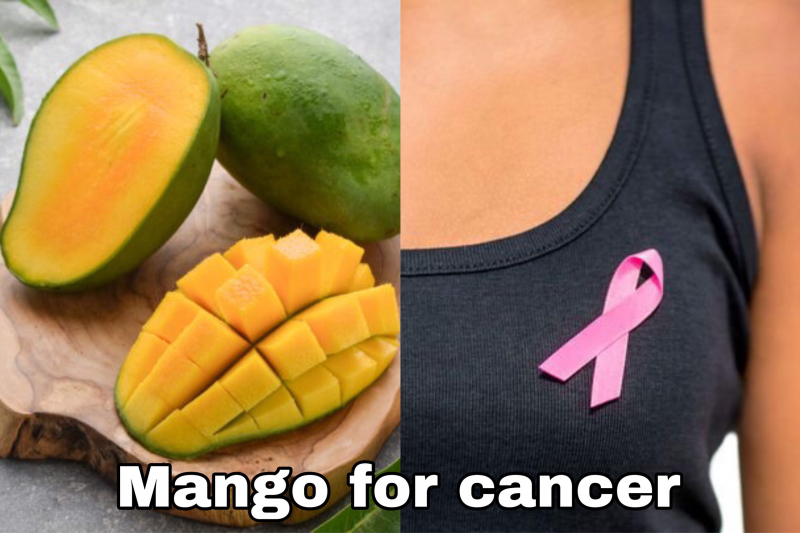
Cancer prevention 
Cancer prevention -
One of the lesser-known nutritional benefits of mango is its capacity to safeguard your skin's health. Mangoes include vitamin A, which aids in the growth and maintenance of the epithelium of the skin, hair, and sebaceous glands, hence keeping hair follicles healthy and the hair moisturized and strong. A cup of mango also gives the body 75% of the vitamin C it requires for the day. Vitamin C is necessary for collagen formation, skin suppleness, wrinkle reduction, and skin drooping prevention.
Mangoes are also good for your hair because they contain vitamin A, which is required for sebum production and keeps your hair nourished. Researchers discovered that the nutrients in mangoes aid in the prevention of hair growth. Furthermore, mango has the capacity to boost hair regeneration due to its high vitamin A concentration. The retinol in vitamin A really stimulates the formation of new cells. Daily consumption of 165g of mangoes of vitamin C is required for the formation and maintenance of collagen, which provides structure to skin and hair.

Enhances the vitality of the skin and hair 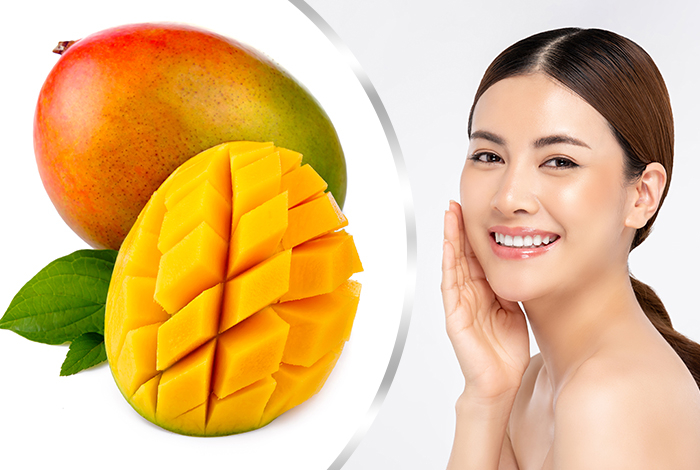
Enhances the vitality of the skin and hair -
Mango has lately been highlighted as a highly effective fruit in the battle against diabetes, and a new Australian study has validated this. Because the chemicals in mango operate similarly to some diabetic and cholesterol drugs so eating one mango each day can help decrease cholesterol and battle diabetes.
Due to mango being a delicious and sweet fruit, seeing its effect makes you feel confused and bewildered. However, the sugar in this fruit is a natural sugar that is perfectly harmless; other plant components discovered in mango have a significant influence on diabetes risk factors. However, eating too much mango is not good for your health. According to data, 100g of mango contains around 20g of carbs (carbohydrates that create energy for the body). As a result, in the case of high blood sugar, it is critical that the patient avoid eating more mangoes and carefully regulate total carbohydrate consumption throughout the day.

Maintain a healthy glycemic index 
Good for diabetes -
A dish of mango can give around 25% of the daily amount of vitamin A required by the body. As you all know, vitamin A helps to brighten the eyes, therefore eating a mango on a daily basis can help avoid night blindness, refractive errors in the eyes, dry eyes, and keratitis.
Mango antioxidants such as lutein and zeaxanthin help keep your eyes healthy. Because these two natural active components help preserve the retina and eye lens, they have been shown to improve eyesight, minimize glare when exposed to intense light, and quickly return to normal. When exposed to strong light, at the same time, these two active components help protect the eyes from the damaging effects of UV radiation, as well as prevent and treat eye diseases.

Get better eyes 
Get better eyes -
According to research, a lack of vitamin A depletes your natural immunity. This indicates that getting adequate vitamin A is critical for having a healthy immune system. Mangoes are abundant in immune-boosting nutrients. Mango contains 10% of your daily vitamin A requirements in 165 grams. Mango is high in vitamin A, and one of its main nutritional advantages is its immune-boosting characteristics.
Vitamin A is required for a healthy immune system since it aids in the fight against infections. Meanwhile, a lack of vitamin A has been related to an increased risk of infection. Furthermore, the same quantity of mango supplies about three-quarters of your daily vitamin C requirements. This vitamin can assist the body in producing more disease-fighting white blood cells, help these cells work more efficiently, and improve the skin's defenses.

Increase immunity 
Increase immunity -
Mango does have laxative and anti-constipation properties. American researchers discovered that taking 300 grams of mango per day helps persons with persistent constipation excrete more readily. According to studies, consuming mango stimulates bowel movements and lowers inflammation after extended periods of constipation. "Eating mangoes helps alleviate chronic constipation by contributing to cleansing the intestinal system, lowering the formation of toxins, reducing inflammation, and raising levels of fatty acids that help safeguard sugar health gut", says expert Vinicius Paula Venancio.
Mangoes have the appropriate quantity of vitamins and minerals to aid digestion. Common constipation alleviation therapies, such as laxatives, can successfully alleviate constipation but have very little effect on reducing inflammatory symptoms. Meanwhile, research has shown that eating mango not only adds fiber and improves constipation, but is also useful in lowering intestinal inflammation. You can add mango to your daily snacks to help improve constipation.

Against constipation 
Against constipation -
Mango is well-known for its sweet and tangy flavor that is easy to consume. You may eat it as is or mix it with other vegetables and fruits to make smoothies and salads. Mangoes are high in vitamins and minerals, which assist the body to absorb nutrients and are beneficial for the excretory system.
Mango is an excellent choice if you are asking for "what fruit should be eaten with kidney stones". Mangoes include β-Carotene, which improves physical health, improves liver function, and prevents kidney stones. Mangoes can also help you regulate your weight better, lowering your chance of kidney stones. Patients with kidney stones who consume mango on a daily basis will assist to limit the creation of new stones, and the stone will eventually disappear.
Reduce kidney stones 
Reduce kidney stones -
Mango is a fruit that contains numerous vitamins, potassium, iron, minerals, fiber, and other nutrients that the body needs. Mango This fruit is frequently used in smoothies, yogurt, tea, jam, dry food, and other dishes. The nutrients in mango have the capacity to regulate the hormone leptin, aid in the removal of fatty acids, and hence aid in the removal of excess fat more efficiently.
Green mango includes an abundance of fiber, which helps to induce a sensation of fullness, decrease hunger, and so manage high intake into the body. In particular, phytochemicals in mango have the capacity to inhibit fat cell growth, minimize the danger of weight gain, and maintain a healthy weight. Does eating mangoes make you overweight will depend on how you eat and the quantity of each person's diet. It will not cause fat if consumed in moderation. If you eat solely mangoes, you will quickly become bored, therefore the easiest approach to diversify your menu is to blend mangoes with different items every day to modify the taste.
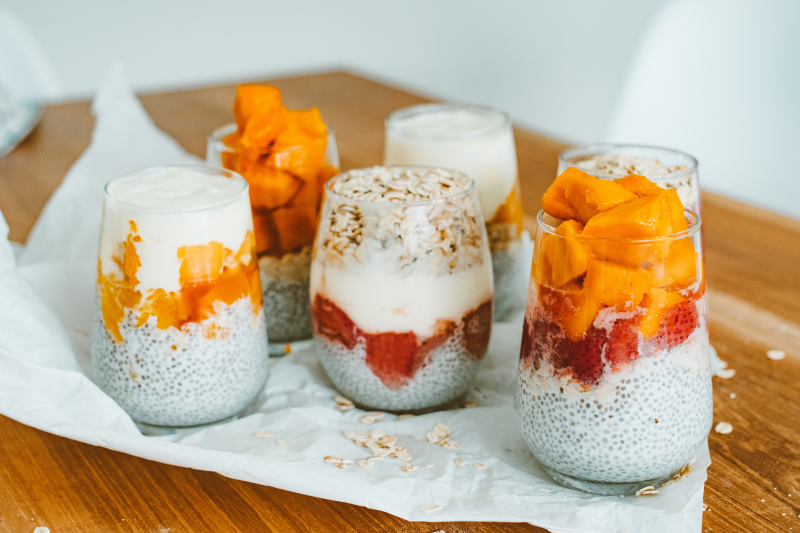
Weight loss 
Weight loss














